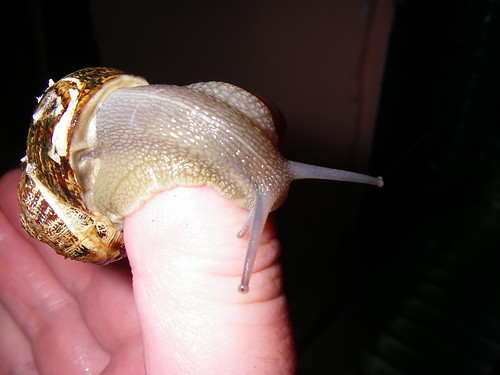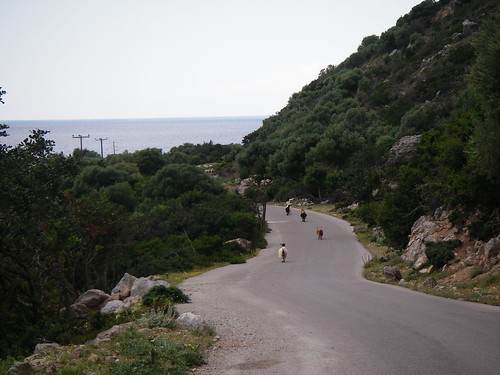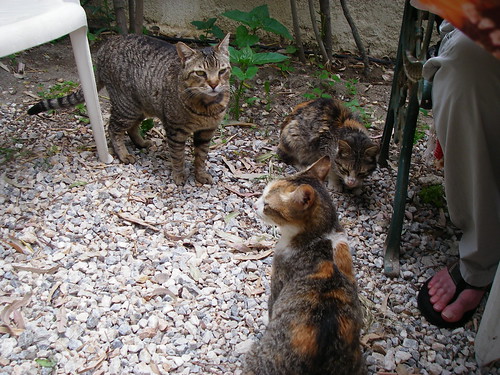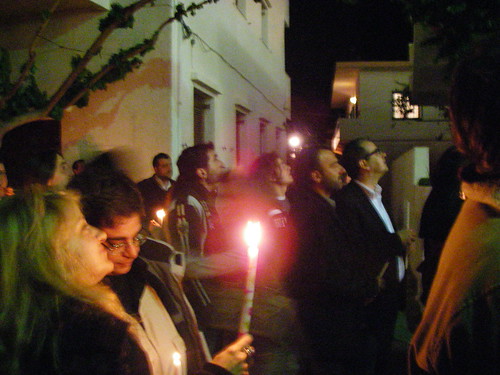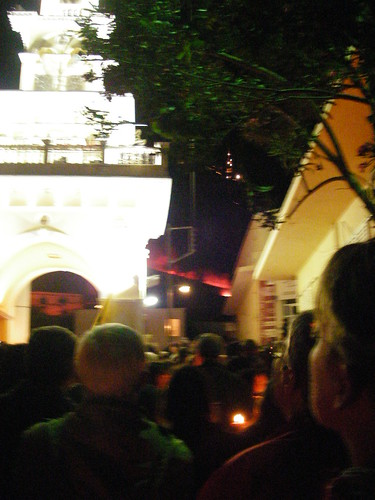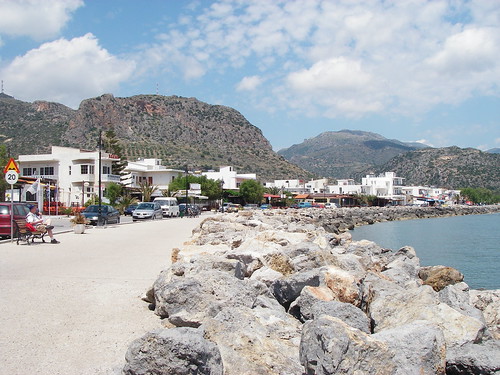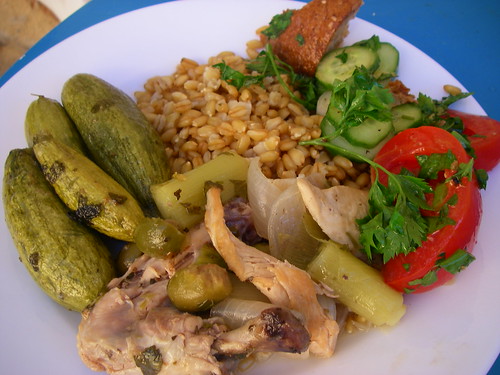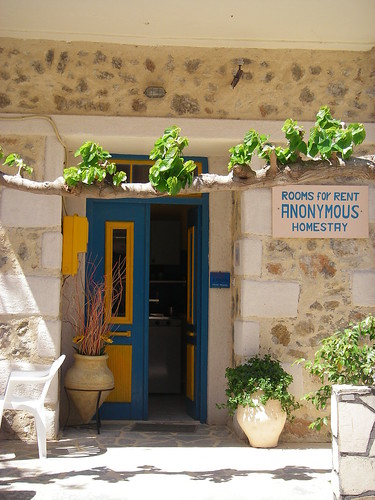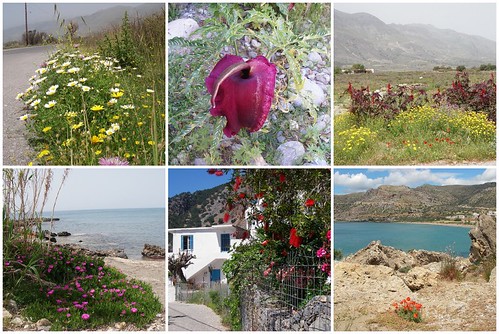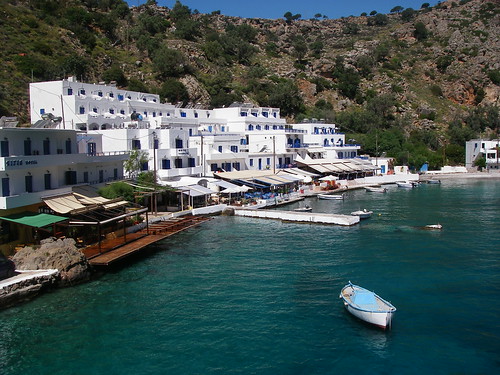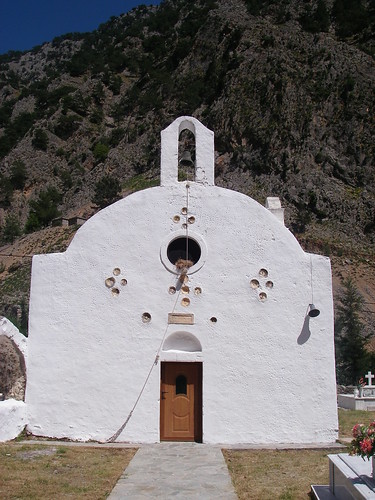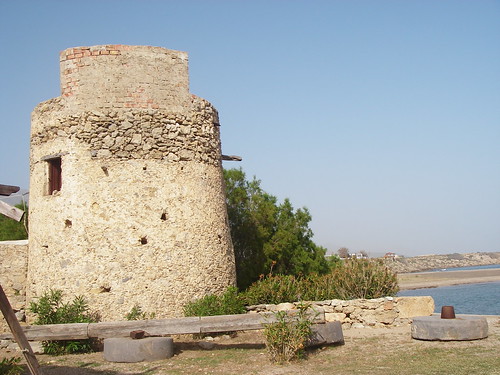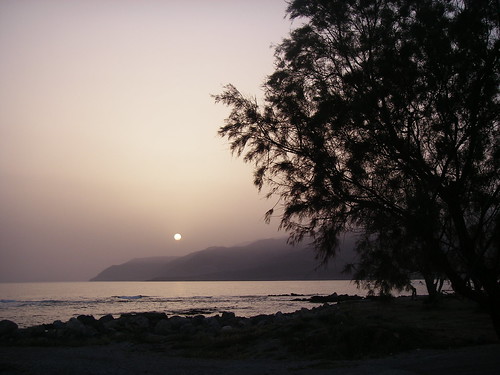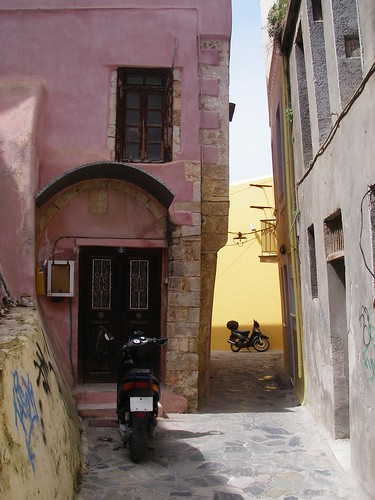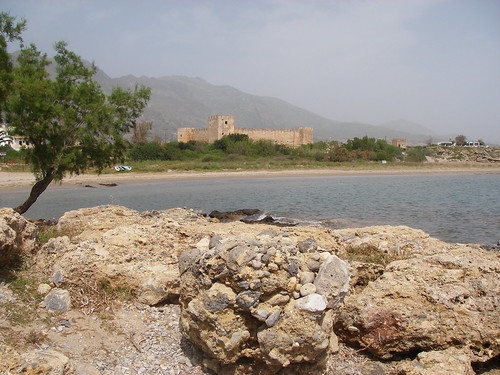Snails with Yanis
Wednesday, April 30th, 2008One Cretan speciality I wanted to try as soon as I spotted the main ingredients piled up in net bags in wicker baskets at the greengrocer’s were snails.
I refrained from purchasing one of those bags (about 7€ per kg.), remembering my promise about not bringing fish, fowl or other creatures into the homestay kitchenette. Besides, I didn’t have the first idea how to set about preparing the things.
None of the lower-end tavernas had snails on their menu. I wished for access to a kitchen with a friendly chef who could teach me about them.
Enter Yanis.
We had asked him whether the Cosmogonia Bar does food. To be honest, late evenings the place is plenty busy serving beer (each order is accompanied by different nibbles), and the bar is surrounded by cafés and restaurants that do. Yanis said he serves breakfast and lunchtime snacks in the season, and yes, mezedhes might be a good idea to stimulate business during early evenings. After all he did have a kitchen.
So we talked about Cretan food, and we talked about snails and Yanis said: “Why don’t I make some for you tomorrow? Come at about eleven, then you can taste them.”
And I said: “Oh, can I watch you and learn how to prepare them?”
It was early in the evening of the fateful night that almost ended in a bar fight. As predicted, the following morning my head was nearly killing me and the tension hadn’t worn off. I was in two minds about going to see Yanis, but I was damn glad that I did, even if I was a bit monosyllabic. He had been expecting me.
We spent almost the entire afternoon in the kitchen, batch-processing a kilogram of snails, with Yanis nearly forgetting about the customers who trickled into the bar every now and then.
All in the name of friendship.
[read on]
